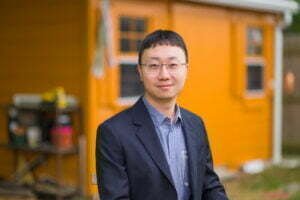Member Insight – Yaguang Wei
 What sparked your decision to become an epidemiologist?
What sparked your decision to become an epidemiologist?
After studying actuarial science for six years, I chose to pursue a master’s and doctoral degrees at Harvard T.H. Chan School of Public Health with a strong wish to have a wider impact on promoting population health. At Harvard, I completed my master thesis evaluating the associations between abnormal climate conditions and the risk of dementia hospitalization. This project was the starting point of my career. Knowing that my research could help understand how our environment impact human health and promote healthier community really inspired my passion to become an epidemiologist.
What do you see as the biggest obstacle facing epidemiologists in the next five years?
In my research area there are several pervasive but commonly ignored obstacles to sound epidemiologic evidence, including measurement error, confounding bias, complexity of mixtures, selection bias. These obstacles render our research unreliable. In practice, the related consequences and study design issues should be treated more seriously especially when drawing causal determinations and policy implications.
Do you have any pets?
Not yet. We’ve taken care of friends’ dog and two rabbits a number of times and we love them. Now we’re thinking about bringing a new member into our family.
Why did you join SER? What keeps you coming back?
I believe it’s the diversity and inclusion. To me attending SER is a major way to build connections with prominent and peer epidemiologists in a variety of different areas that I do not normally have the opportunity to meet. Listening to their talks and communicating with them not only informs me of what others are doing, but also inspires new ideas of my own. Building connections to my peers is also valuable, as I know many of them will be my future colleagues, collaborators, reviewers, and other roles that will affect my career. On the other hand, I hope they can learn more about my science as well as myself. I am always keen to receive valuable feedback which helps me understand areas of my work that require improvement.
What advice do you give students who want to become epidemiologists?
The first thing I’d suggest is to find your area of interest. There are huge differences from pharmacoepidemiology to infectious disease epidemiology, so make sure you know what your area is about before getting into. Another suggestion is that in graduate school, explore different options regarding future careers by communicating to people in different sectors (academia, industry, government, nonprofit). Attending SER will be helpful in this respect 😊
Outside of epidemiology what do you enjoy doing?
I enjoy beach vacations with family and friends. In my spare time every day, I like reading and making coffee. And I love bubble tea.
What is something that not many people know about you?
I can’t find my way without GPS when outside. Any suggestions on improving sense of direction would be much appreciated!
